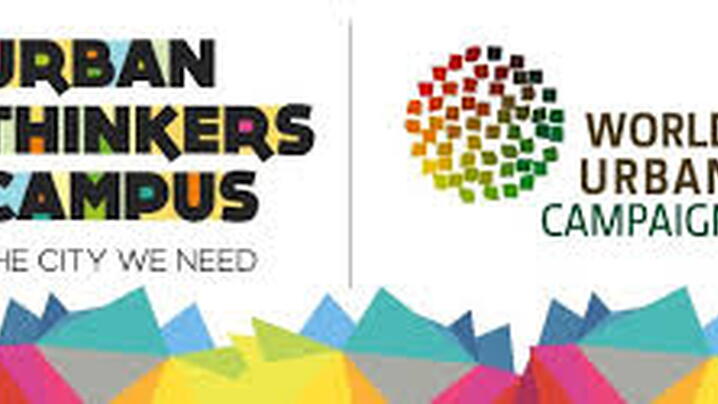
This week I was in Omaha participating in an Urban Thinkers Campus (UTC) hosted by the Joslyn Institute for Sustainability. This was one of 28 events that will occur around the world in an effort to get grass roots feedback on "The City We Need" document that will lay out the direction of global urban development over the next 20 years. If this sounds like a tall order to our readers, you're not alone. This was my reaction as well. However, when you think about it, what an incredible way for a huge organization like the UN to rally practitioners, academicians, politicians, and professionals to begin visioning what future cities will need to be successful in an every changing world.
This specific UTC looked at small and medium sized communities (under 3 million) that represent the majority of the communities that CityLinks works with and that ICMA members manage. I presented on the idea of "Regionalizing Climate Action". With a global focus on mega cities and their contributions to global emissions, small communities often feel left out of the climate debate, and worse still lack the resources to begin thinking about appropriate adaptation and mitigation strategies. Through CityLinks we've worked with communities to leverage resources by looking regionally outside of local government boundaries to leverage data and resources for more climate resilient urban and peri urban andscapes. In researching regional climate action I came across some great resources and examples:
King County Cities Climate Collaborative
King County and eleven Washington cities — Bellevue, Burien, Issaquah, Kirkland, Mercer Island, Redmond, Renton, Seattle, Shoreline, Snoqualmie, and Tukwila — are collaborating through the King County-Cities Climate Collaboration (K4C) to coordinate and enhance the effectiveness of local government climate and sustainability action.
The Los Angeles Regional Collaborative for Climate Action and Sustainability
A network designed to encourage greater coordination and cooperation at the local and regional levels by bringing together leadership from government, the business community, academia, labor, environmental and community groups.
Southeast Florida Regional Climate Compact
The Compact was executed by Broward, Miami-Dade, Monroe, and Palm Beach Counties in January 2010 to coordinate mitigation and adaptation activities across county lines. The Compact represents a new form of regional climate governance designed to allow local governments to set the agenda for adaptation while providing an efficient means for state and federal agencies to engage with technical assistance and support.
The Alliance of Regional Collaboratives for Climate Adaptation (ARCCA)
A network comprised of existing regional collaboratives from across California. ARCCA’s members represent leading regional collaboratives that are already coordinating and supporting climate adaptation efforts in their own regions in order to enhance public health, protect natural systems, build economies, and improve quality of life. Through ARCCA, member regional collaboratives have come together to amplify and solidify their individual efforts, as well as to give a stronger voice to regionalism at the state and federal levels. ARRCA members share information among regions on best practices and lessons learned; identify each region’s most innovative and successful strategies; and then determine how these strategies could be adapted to another region’s particular needs.
Often in the absence of state and federal mandates or support, these communities have come together to take steps toward a more resilient future for their residents. While each of these collaboratives functions differently, they have helped make the case for regionalizing by:
- Leveraging small amounts of fiscal resources for staff investment
- Attracting the attention of state and federal agencies with funding for adaptive infrastructure
- Allowing for knowledge sharing that contributes to process improvements and efficiencies
- Creating the foundation for a collaborative environment
I'd invite other communities to explore the idea of working regionally in a way that makes sense on a community by community basis. The ICMA and CityLinks staff are here for support too! Please reach out if you'd like to begin thinking about these possibilities in your community!
New, Reduced Membership Dues
A new, reduced dues rate is available for CAOs/ACAOs, along with additional discounts for those in smaller communities, has been implemented. Learn more and be sure to join or renew today!
